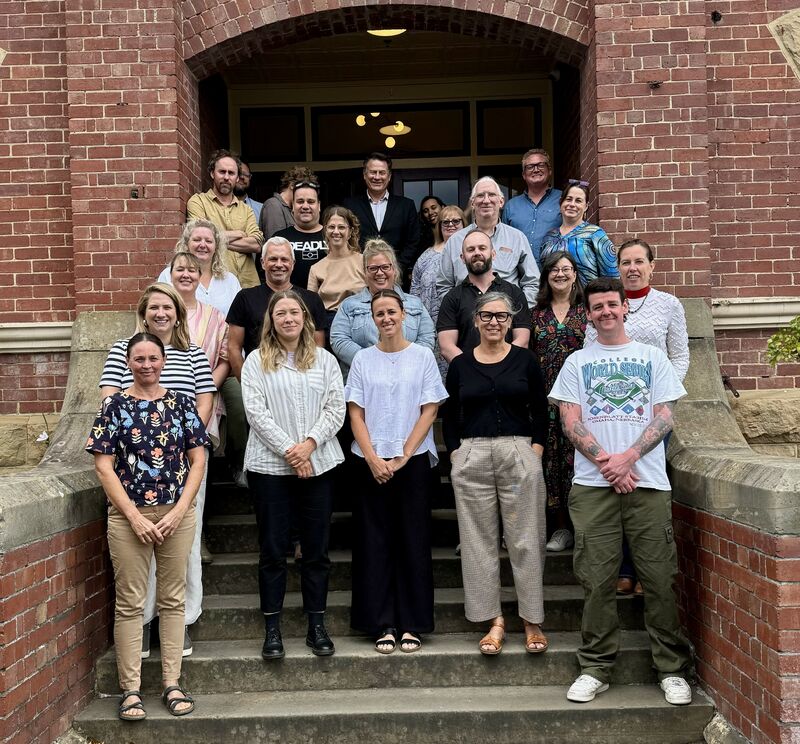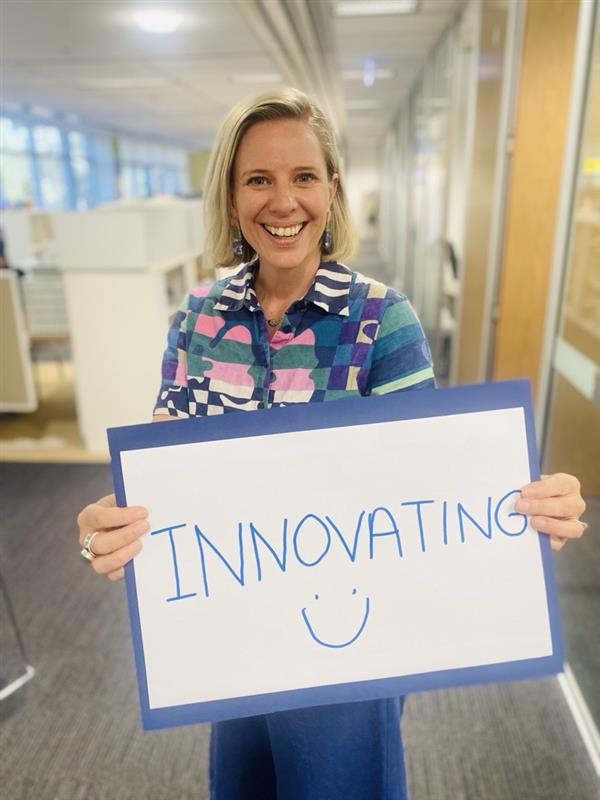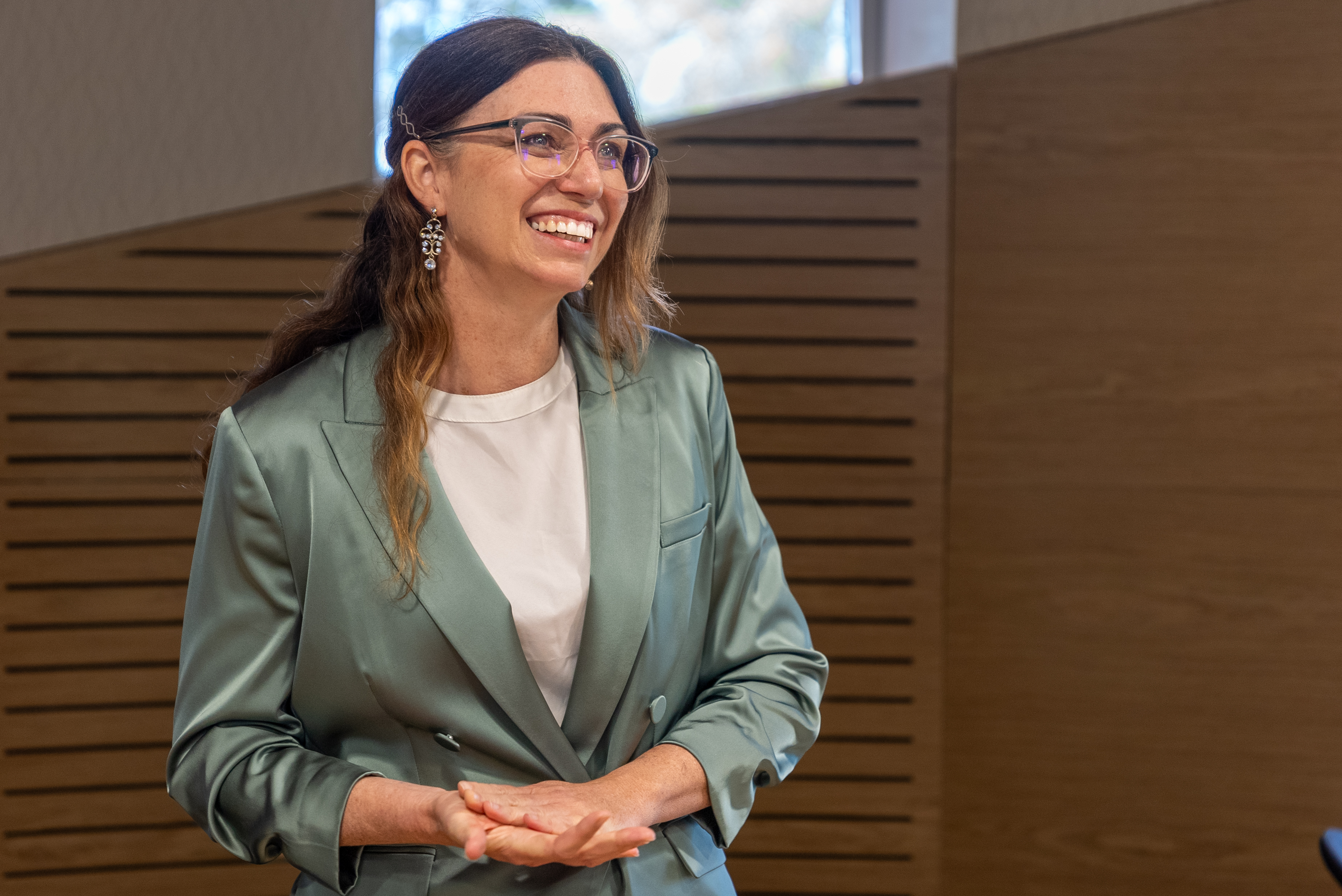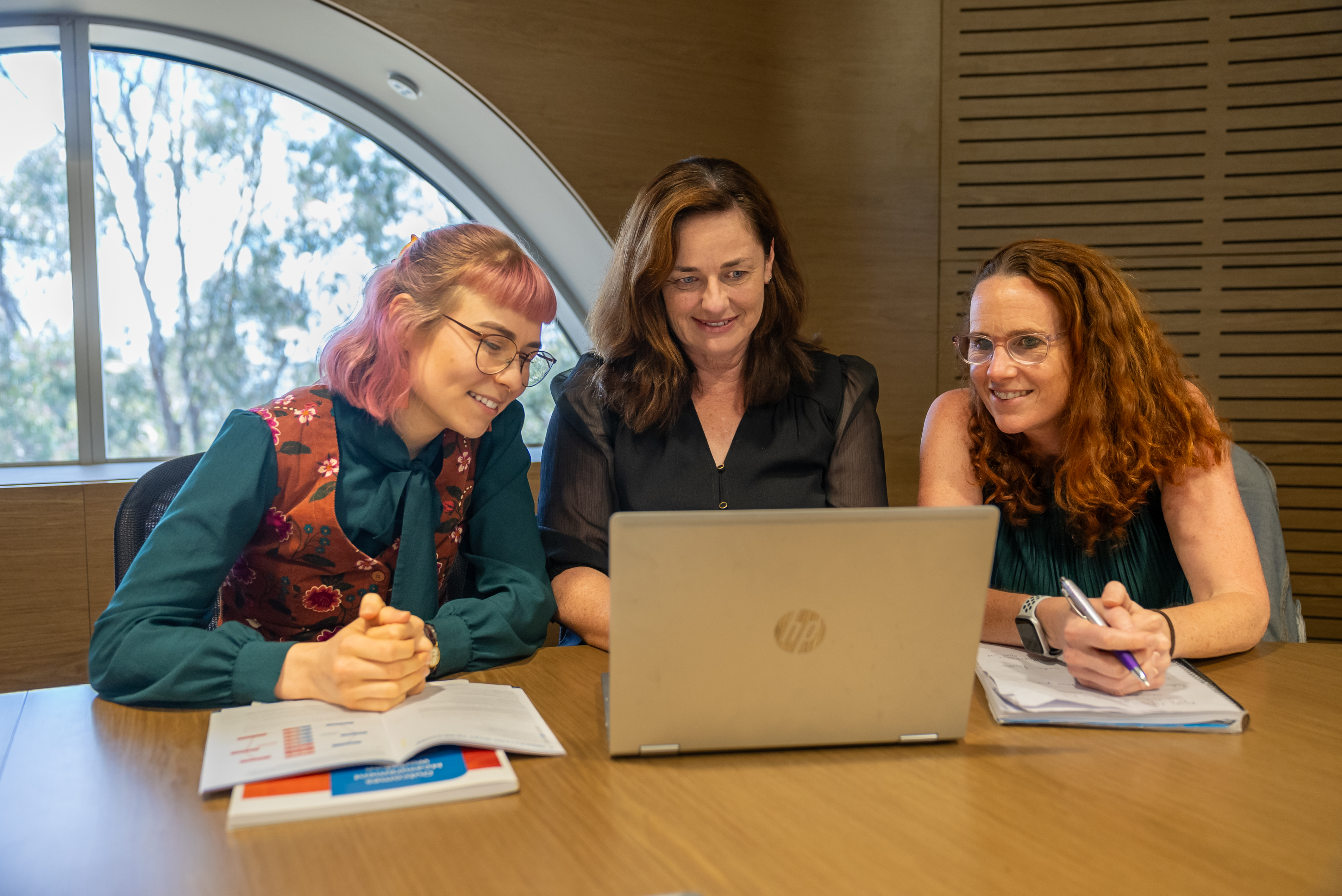Centre for Social Impact UWA
Catalysing social change
The Centre for Social Impact UWA (CSI UWA) creates and delivers education that transforms, research that informs best practice, and public engagement that inspires and mobilises change makers.
We develop solutions that are rigorous and purpose-driven and work with people, communities and organisations across Australia to grow their capabilities.
The Centre for Social Impact is a collaboration of four universities: Swinburne University of Technology, Flinders University, University of New South Wales and The University of Western Australia.
Together as a network, our purpose is to catalyse positive change, to help enable others to achieve social impact.
Undergraduate Unit
BUSN2102 Changing the World: Social Innovation, Finance and Enterprise highlights how innovation and entrepreneurship are solving major global social and economic challenges such as hunger, poverty, homelessness and intergenerational disadvantage and unemployment.

Professional Development
CSI UWA has developed the Outcomes Measurement Workshop, an interactive learning workshop designed to develop understanding of outcomes measurement and how to implement it in organisations. For an Outcomes Measurement Workshop tailored to your organisation's needs, contact our team.

Graduate Certificate in Social Impact
The Graduate Certificate in Social Impact (GCSI) has a uniquely comprehensive curriculum based on systems thinking and social design principles. Our teachers are regarded as some of the leading lights in social impact, social investment, social enterprise, corporate social responsibility, and social innovation.
It is also pathway to the MBA (Flexible).
Master of Business Administration (Social Impact)
Deciding to study an MBA (Flexible) with a specialisation in social impact is a strong and committed decision to fusing business and social impact together to benefit community, business and yourself. Students of the GCSI can progress into the MBA (Social Impact) as part of the MBA (Flexible). The course draws on the GCSI courses for the social impact specialisation.

Providing evidence-based research to help catalyse
positive social change
CSI UWA has extensive experience in researching and evaluating a broad range of programs that address social issues such as entrenched disadvantage, family domestic violence, homelessness, mental health, disability, employment and financial inclusion.
What we can do for you:
- Undertake leading research that supports positive social impact
- Provide social impact measurement and evaluation expertise
- Provide knowledge and experience in innovative approaches to capturing evidence and measuring outcomes
- Co-design measurement frameworks and participatory methodologies
- Develop tools and provide findings that will best support ongoing efforts to improve lives of individuals
We collaborate with a diverse range of partners including:
- Charities, not-for profit organisations and peak bodies
- Community-based organisations
- Corporate organisations, businesses and social entreprises
- Philanthropic foundations
- Commonwealth departments, State/Territory government departments and local government
Our multi-disciplinary team has a proven record of producing deliverables that are robust in development, easy to use in context, timely, align with contemporary government practices and enrich our understanding about what is effective.

Research areas
Children and young people
Digital inclusion
Disability
Education
Employment
Evaluation
Financial inclusion
For-purpose sector
Housing and homelessness
Mental health
Policy
Social Enterprise
Featured Research Projects
- She Gives (Women's philanthropy in Australia)
-
She Gives has partnered with CSI UWA to launch the most extensive research project on women's philanthropy in Australia.
This ground-breaking project will reveal how women give, what drives their generosity, and the obstacles they overcome. The research includes data gathered through She Gives’ online surveys, in-depth interviews, and roundtable discussions, including a landmark event hosted by Her Excellency the Honourable Sam Mostyn AC, Governor-General of Australia, at Government House in Canberra in November 2024 (pictured).
Increasingly, women are at the forefront of social change, giving through finances, time, skills, and networks. This comprehensive report, led by Paul Flatau and Dr Leanne Lester, will shine a light on their incredible contributions and impact.
Read the article and add your voice to the survey. - Community pools in the Pilbarra
-
Empowering remote WA communities through education and programs
Royal Life Saving Society Western Australia (RLSSWA) is the largest provider of water safety education in Western Australia, and they depend on community pools to deliver this education.
Since 2003, BHP has partnered with RLSSWA, providing $5.2 million to deliver the Water Safe WA program in the Pilbara region.
CSI UWA evaluated the social impacts of community pools and associated programs and initiatives in Port Hedland, Newman, Yandeyarra, and Jigalong communities. Reports demonstrated that these programs generate real social impact across health and well-being, social connection, safety and education, social cohesion, and employment and present targeted recommendations for further investment and growth.Go to the Centre for Social Impact website to read more about the project.
- Reimagining the Role of Lodging in Ending Homelessness
-
The report "Reimagining the Role of Lodging in Ending Homelessness: An Evaluation of Foundation Housing’s Lodging and Support Services" highlights how lodging accommodation managed by community housing provider, Foundation Housing, provides a cost-effective and successful model that could be further expanded to address the housing crisis.
The evaluation of Foundation Housing Lodging – which has 15 lodging houses in Western Australia –finds this model offers affordable long-term stability while addressing the holistic needs of residents through engagement and support services, promoting health, wellbeing, and social connection. - Evaluation of a regional family domestic violence service
-
People living in regional, rural, and remote areas who experience family and domestic violence face specific issues related to their location and the cultural and social characteristics of living in small communities.
Our partner DVassist provides much needed counselling services for those affected by family domestic violence in WA’s regional communities.
Researchers at CSI UWA evaluated the DVassist pilot program through mixed methods:
- Analysis of case management data, and
- Interviews and written statements from DVassist staff, and regional stakeholders
The evaluation showed over a 20-month period, DVassist recorded over 2,500 calls with the majority of calls focused on counselling.
- Door-to-Door for Mental Health (Assisting Communities through Direct Connection)
-
The largest ever door knock delving into the mental health of households across the country has revealed the true extent of our national crisis, with nearly half of people reporting being in distress and more than one-third saying they need more support – but many encountering barriers to receiving help.
The ACDC (Assisting Communities through Direct Connection) project, run by Community Mental Health Australia (CMHA) and funded by the Commonwealth Department of Social Services, knocked on about 37,500 doors across the country to kickstart conversations about mental health and encourage people to access support services.
Evaluation of the project by the Centre for Social Impact UWA shows that 49.4% of respondents reported being in moderate to very high distress, and 36.7% of respondents said they needed more support.
Go to the Centre for Social Impact website to read more about the ACDC project.
- WA Financial Counselling: Disaster Preparedness, Response and Recovery Framework
-
Shaping how to support communities when disaster strikes
Communities across the country are facing disasters that are not only more frequent but also more intense. As these challenges grow, so must our response.
CSI UWA recently launched our new report with Financial Counsellors' Association WA (FCAWA), a key milestone in helping them take a more proactive and nuanced approach to disaster management - one that’s deeply rooted in the realities and needs of communities across the country.
This new framework serves as a practical guide to maximise support and resilience, ensuring our efforts are both timely and tailored.
Find out more about how this work will help shape a more responsive future.
- Workplace Sexual Harrassment
-
To understand the prevalence of Workplace Sexual Harassment in WA and Australia, the Centre for Social Impact at The University of Western Australia (CSI UWA) has partnered with Circle Green Community Legal and undertaken new research to help identify legal need priorities related to workplace sexual harassment and discrimination in Australia.
Circle Green is the lead agency delivering the Workplace Sexual Harassment and Discrimination Legal Services Project (referred to as “the Workplace Respect Project”) in Western Australia.
In its new report, Understanding workplace sexual harassment: Trends, barriers to legal assistance, consequences, and legal need, the Centre for Social Impact UWA builds on existing literature on workplace sexual harassment, as well as interviews conducted with community legal centres and other stakeholder organisations, and people with lived experience of workplace sexual harassment, to identify and understand its prevalence, nature, and occurrence in WA.
Go to the Centre for Social Impact website to read more on our work on Workplace Sexual Harassment.
- Making mental health support work better for regional communities
-
Despite their resilience and strengths, regional communities in WA and around Australia have the greatest need for mental health support. Inadequate services, insufficient funding and difficulty in accessing support need to be urgently addressed.
The Western Australian Association for Mental Health (WAAMH) has engaged the Centre for Social Impact UWA to better understand what is different about living in regional areas that leads to poorer mental health and difficulties accessing support, and what further support is needed to improve the lives and wellbeing of people living in those communities.
New report ‘Going the distance: Making mental health support work better for regional communities’ highlights challenges that are common to rural communities as well as the needs that are unique to individual places. Participants reported the need for tailored, community specific services – be they community services that address the social determinants of mental health, peer support groups, education programs or treatment services.
- Looking through an Aboriginal lens: Ngalang Moort Wangkiny (100 Families WA)
-
Extending from the 100 Families WA project, the Ngalang Moort Wangkiny (Noongar for “Our People Yarning”) project reports on the experience of Aboriginal entrenched disadvantage in Perth and the major lessons that should be drawn by the community sector on ending entrenched disadvantage in Perth.
The overarching goal of the 100 Families WA project is to develop an ongoing evidence base on poverty, entrenched disadvantage, and social exclusion in Western Australia that will be used by the policy and practice community.
- PLAN to help vulnerable parents bridging the gap
-
In 2020 Bridging the Gap (BTG) identified a significant gap in services for parents experiencing domestic violence, homelessness or housing instability, unemployment, mental health issues and financial hardship in areas of the Peel region (WA). To address this, the Parents, Learning, Advancing, Nurturing (PLAN) project was created to assist vulnerable parents aged 18-64, offering holistic, high-touch case management with both practical and relational aspects of support that transcended traditional service boundaries.
Funded by Lotterywest and evaluated by the Centre for Social Impact UWA team from October 2021 to June 2023, the PLAN project gives targeted support through a bespoke suite of activities.
Go to the Centre for Social Impact website to read more on how the PLAN project transformed the lives of vulnerable families.
A dedicated multi-disciplinary team

News and events
Women Shaping the Future of Philanthropy in Australia
New research findings capture how women across Australia participate in giving and drive impact.
Read moreCommunity Mental Health
Supporting healing, empowerment & growth: An evaluation of the Recovery Options program
Read moreNew Social Impact Masterclass Series
Learn strategies and gain practical tools to amplify your impact.
Read moreFrom the cause of all evil to marketing for change
This webinar will change perspectives on marketing from focusing on sales towards a tool that can be utilised to bring positive change.
Read moreOutcomes Measurement Workshops coming to Hobart in March 2026.
Elevate your organisation's impact and demonstrate it effectively.
Read more2025 UWA Business School Awards
CSI UWA was awarded the Research Innovation and Impact Award.
Read moreFilling the Gaps in Family Domestic Violence
DVassist’s Counselling Model and Impact in Regional, rural and Remote WA
Read moreBuilding Financial Resilience to Disasters: The Financial Counselling Disaster Framework
A game-changing national resource designed to support individuals and small businesses facing economic hardship after disasters.
Read more
